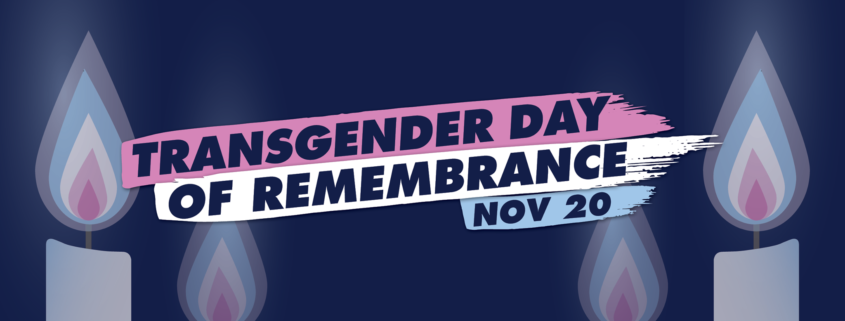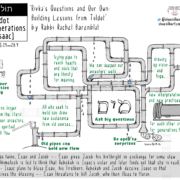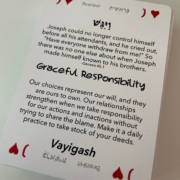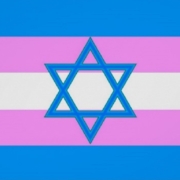TDOR and the Struggle to Feel the Blessing
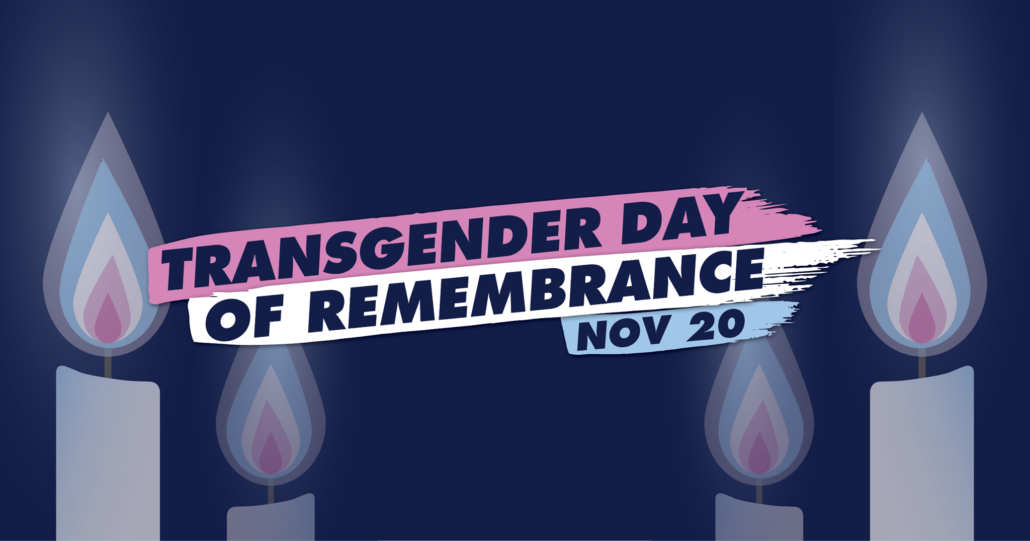
Transgender Day of Remembrance is observed annually, on November 20, to honor the lives that have been lost to anti-transgender violence; may their memories be for a blessing. It is a day that is designated for internalizing our collective responsibility to protect the vulnerable and marginalized. If society better understood the trans experience as the holy gift that it is, then next year we would be celebrating the blessings of their lives being lived, not the memories of their lives lost.
The Hebrew word for blessing, ברך – baruch, evokes the idea of increasing our attachment to another. The three letters that form the word, have the numerical values of two, twenty, and two hundred; when we support each other, blessing multiplies.
Although being transgender is absolutely a blessing, for many the experience is overwhelmingly hard. The struggle to live authentically while one’s identity is being questioned, debated, and legislated is not easy. Living under the constant existential threat of being erased is nothing to be grateful for; yet this is the story, and struggle, of the Jewish people.
In this week’s parsha we read about how Jacob had to run away from home, fleeing his brother Esav. Esav wanted to kill Jacob because of Jacob’s identity as the first born. And still, Toldot is known as the Torah portion of blessings. Each aliya has blessings in it, with the word for “blessing” mentioned more here than anywhere else in the Torah.
The climatic blessing that Issac gives to Jacob begins the sixth aliya. Tradition teaches that the number six is always associated with blessing. This week’s Torah portion is the sixth in the Book of Genesis, and the sixth aliya begins with the sixth letter in the Hebrew Alphabet, the “vuv – ו”.
וְיִֽתֶּן־לְךָ֙ הָאֱלֹהִ֔ים מִטַּל֙ הַשָּׁמַ֔יִם וּמִשְׁמַנֵּ֖י הָאָ֑רֶץ וְרֹ֥ב דָּגָ֖ן וְתִירֹֽשׁ׃”
And may God give you the dew of the heavens and the excess of the earth, and abundant grain and wine.” Genesis 27:28
The Medrash explains that this blessing begins with the conjunction “and” to teach us that blessings are continuous and ongoing: “May God give, and give again”. We acknowledge this, as King David wrote in Psalm 68:20, “בָּ֤ר֣וּךְ ה’ י֤וֹם י֥וֹם – Blessed is Hashem, every day”.
This letter “vuv” is known as the “vuv hachibur”, literally “the vuv that connects”, and is often understood in rabbinic literature as “וא״ו מוסיף והולך – the vuv adds and continues”. The presence, or absence, of this letter speaks to a sense of growth and an awareness of the work that is still required to achieve completeness.
Jacob, when spelled with the “vuv”, – “יעקוב” has a numerical value of 188, half of the value of the word “shalom”, whose numerical equivalent is 376. Rabbi Meir Yechiel HaLevi, the Ostrovtser Rebbe, explains that this reflects Jacob’s belief that he was only complete when he was helping another. His brother Esav’s name, by contrast, has a numerical value of 376 by itself, demonstrating that his sense of fullness came only from separation and isolating himself from others.
Communities, and allies, can offer comfort, safety, and support to those feeling alone or invisible. As we remember those that this world has failed to protect, we must create more awareness of what is necessary to ensure it doesn’t happen again. The word “toldos” also means an extension of a broader principle, as demonstrated in conversations about the laws of shabbat and in the mishnayot of ethics. It is not enough to hold generic truths about the value of human life. We must apply those beliefs to the moment by moment struggles of trans folks, particularly trans youth.
When the Israelites were displaced in the desert and beginning their recovery from being enslaved, God delivered manna each morning that was surrounded by dew to protect it. This was a fulfillment of Isaac’s blessing “And may God give you the dew of the heavens”. It also models for us that it isn’t enough to provide, even in miraculous ways, sustainable access to basic needs and resources – they also must be protected.
This year will continue to present difficulties to the trans community and with it, ongoing opportunities to come together to elevate and alleviate the struggle. God tells Abraham “I will bless those who bless you and curse the one who curses you”. The word for “blessing – ברכה” has the same numerical value as the word “remember – זכר”. When we recall those who are no longer here, and are inspired because of them to make this world a better place, then their memories become a continued source of blessing for all of us.

Rabbi Mike Moskowitz, a founding builder at Bayit and also a member of Bayit’s Board, serves as Scholar-in-Residence for Queer and Trans Jewish Studies at Congregation Beit Simchat Torah, a flagship LGBTQIA+ synagogue in New York City.

